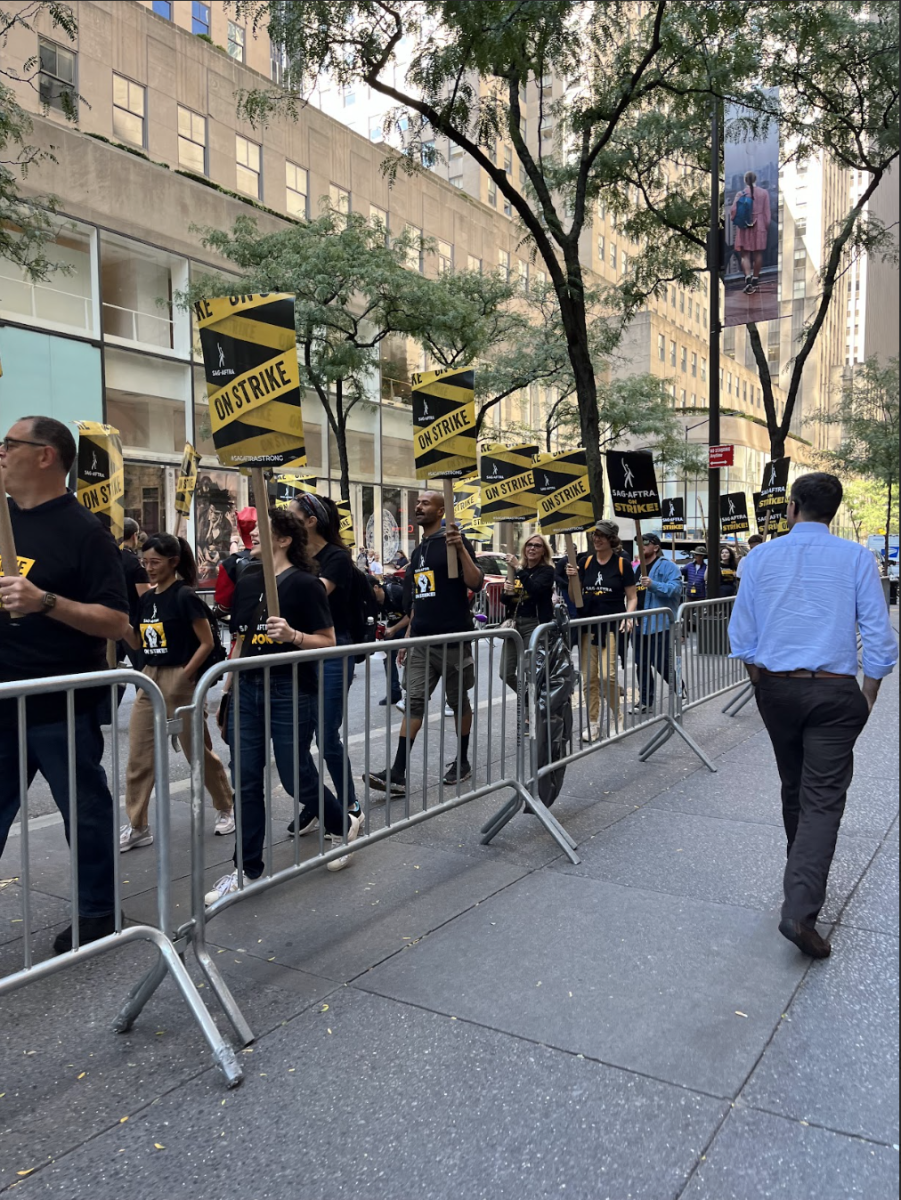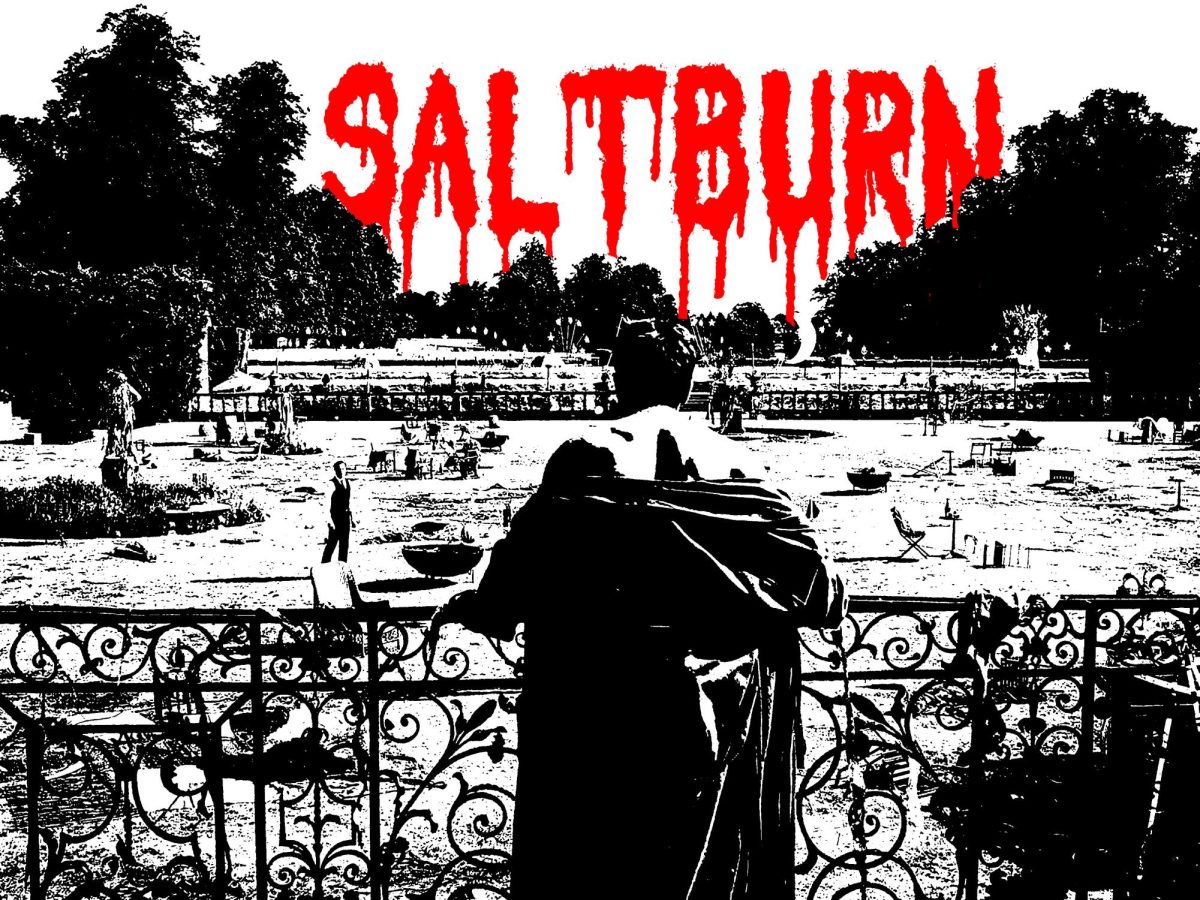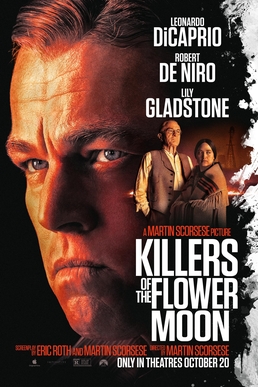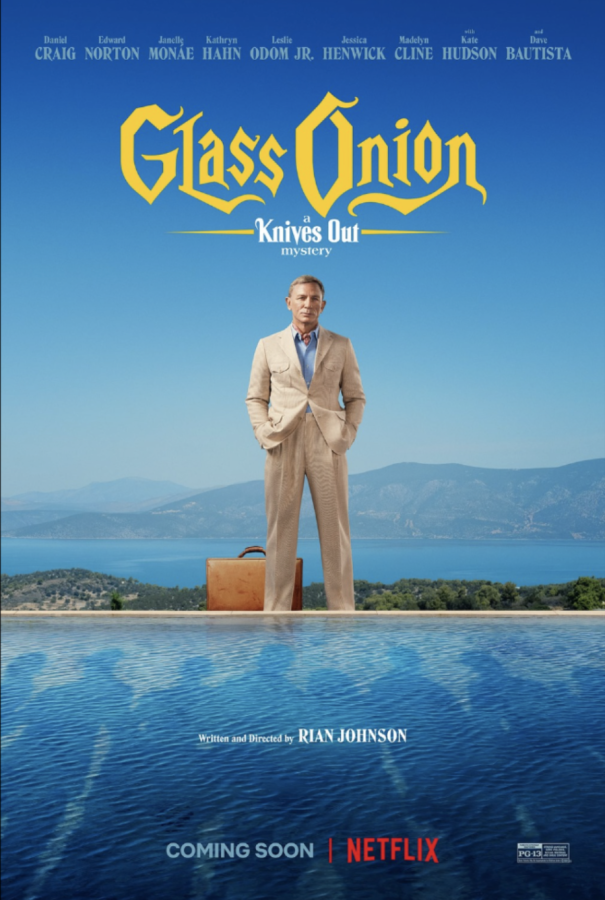I witnessed the piece of intrigue and flamboyancy that is Saltburn about a month and a half ago, and it has somehow rose to the talk of the town. Movie talk is a never-ending cycle of things coming and going, so I was surprised to see people still talking about Saltburn more than two months after its release. Although I was skeptical at first, I took a look at what people were saying, and it came to me. It’s a formula as old as time, and I somehow didn’t see it coming.
If you don’t already know, Saltburn is the second film of English director Emerald Fennell, and it’s about a freshman in College who meets a mysterious, Gatsby-esque rich kid, who he decides to move in with over Christmas break. All of the publicity and excitement surrounding the film boils down to about three scenes that I will not be spoiling, but if you know, you know.
Saltburn released VOD (Video on Demand) and Prime Video on December 22nd, where it began to build its real audience. From my perspective, Saltburn is a dry, slowly paced mess that never knows what it really wants to be. But I don’t want to talk about my opinion, rather I want to talk about how movies like Saltburn are able to succeed off of negative, and controversial publicity. This marketing technique guarantees a reputation of polarization and memorability.
We as humans are uniquely drawn to our curiosities of the strange and abstract. This pull is what a lot of advertising slowly grew to become at the turn of the 20th century. Pulling humans into a world of wonder and spectacle, cities such as New York and Chicago grew large districts of entertainment, becoming centers for the arts. The growth in entertainment saw a rise in word-of-mouth advertising, which gained a slight resurgence for the productions and theatrics of big cities. New York and Chicago hardly needed paper or billboard advertising, because of the fantastic stories told by attendees of these performances on Broadway, or The Chicago Theater District.
To build excitement for productions like these, advertisers began to realize how powerful controversy was. In 1973, William Friedkin and Warner Brothers released The Exorcist, which became one of the largest film successes of the 70s. After a few weeks of release, a marketing miracle happened, when Pope Paul VI condemned the film along with other bishops around the world. This Catholic uproar against a horror movie had rarely been seen before, and as news spread of the film’s terrifying nature with people running out of theaters, millions wanted to go. By the time this reached the public, everyone already knew and wanted to witness the spectacle.
Around the same time in the 70s, an auteur was coming out of Baltimore with an ambitious idea. In Pink Flamingos, director John Waters decided to shoot a film about two people competing to be “The Filthiest Person Alive.” The film was so controversial on its release that it received the coveted NC-17 rating, only driving more and more people to see the filthy film. Pink Flamingos is a masterclass of its time and paved the way for a lot of boundary pushing in Hollywood, and crude humor that wouldn’t have been popularized without John Waters. This brings us, nearly fifty years later to the main event, Saltburn.
Times have certainly changed since The Exorcist, and Pink Flamingos with the studio establishment of hundreds of “franchises” consisting of their own stocks of films. Disney produces the contents of Marvel and Star Wars, Paramount ringing Spongebob dry of content, and even smaller products such as Barbie and Tetris, getting their own big screen rendition. In this new world we now have slowly seen a new rise of films that shock and entrance us, forcing us to go back to the theater just like The Exorcist did. This new shock treatment, whether welcomed or excluded, is a revitalisation of a form of marketing as old as time.



























